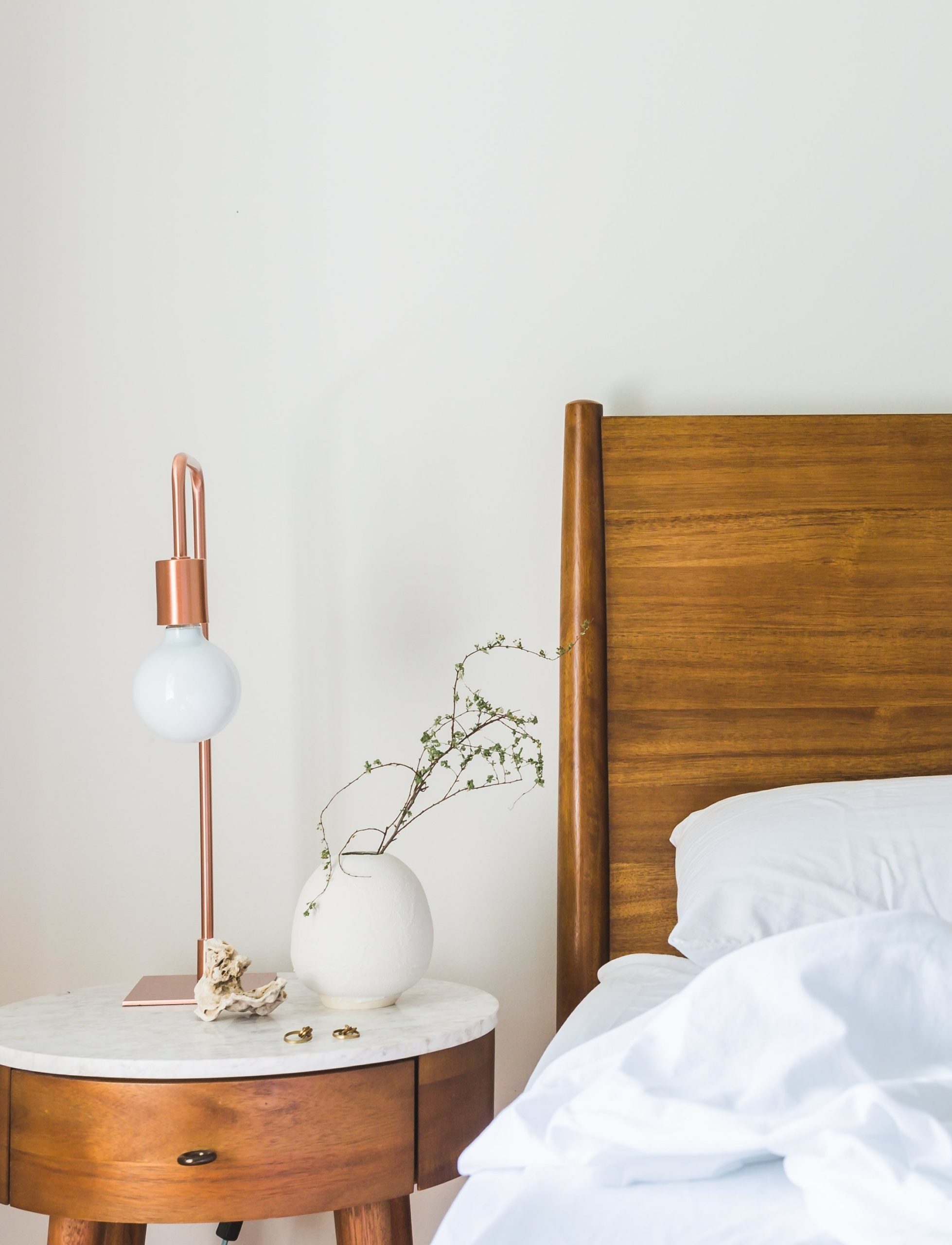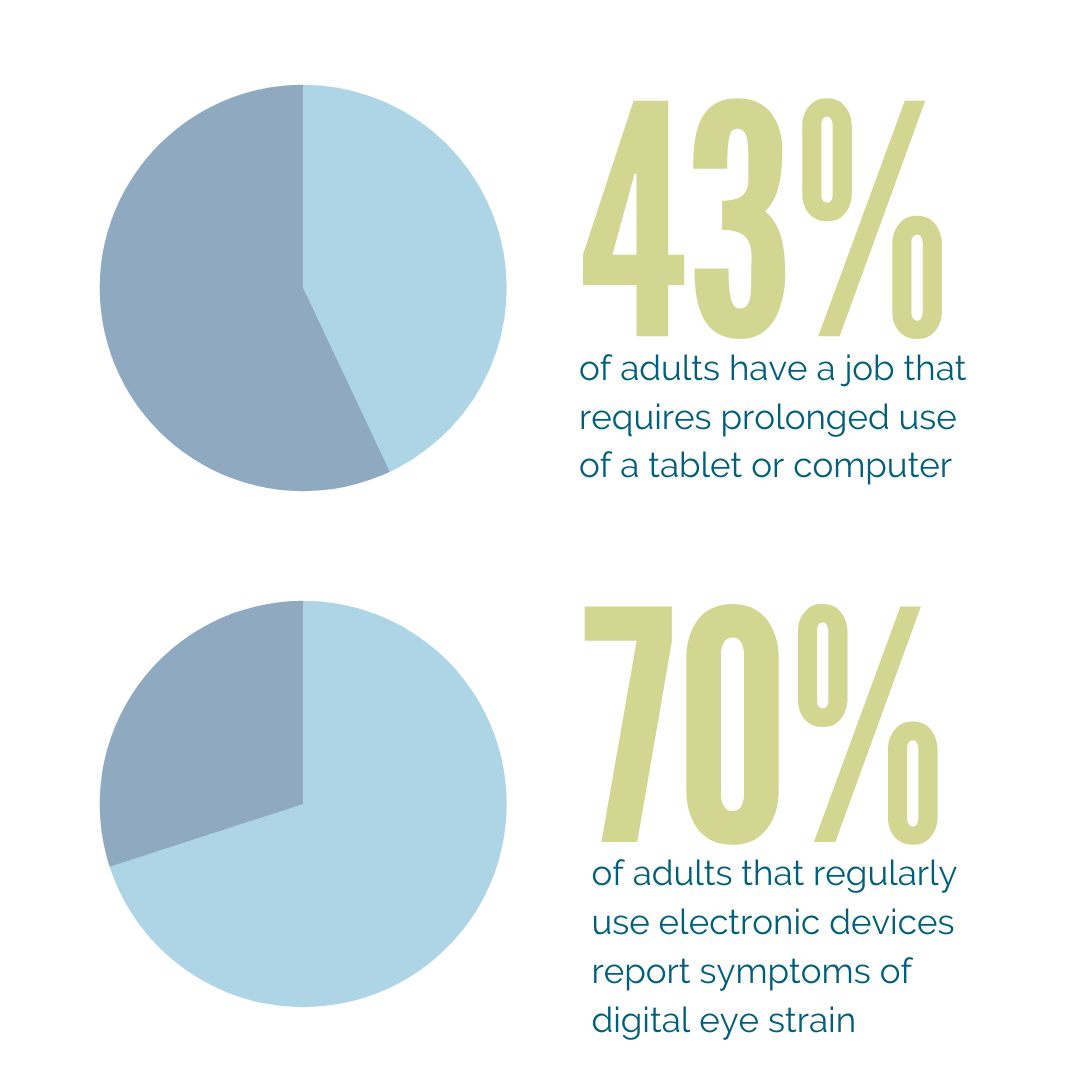It is undeniable that there has been an increased use of devices such as smartphones and computers over the last decade. A 2019 study found that the United States spends an average of 6 hours and 31 minutes per day using the internet via any device. Screen exposure time (and in result, exposure to blue light) only increases when you add television watch time to the equation. With many sources reporting that too much blue light has negative effects, what protective measures can people take to remain protected? In addition, can eyewear such as blue light glasses actually diminish blue light exposure or is it simply trendy eyewear with strategic marketing?
What is Blue Light?
The combination of red, orange, yellow, green, blue, indigo, and violet light rays create white light. Each of these rays differ in their energy and wavelength. For example, red rays have long wavelengths and low energy while blue rays have short wavelengths and high energy. Although sunlight is the main source of blue light we encounter, other sources include fluorescent lights, compact fluorescent light bulbs, LED televisions, and electronics such as monitors, smartphones, and tablets.

Effects

Popular to contrary belief, blue light on its own is not necessarily bad for you. In fact, there are even some benefits. However, the main issue arises when blue light is coupled with a longer exposure duration. The effects of being exposed to blue light for an extended period of time (such as by spending 8 hours at a computer all day) is that it “suppresses the secretion of melatonin —a hormone that influences circadian rhythms” which can ultimately impede sleep at night. Other effects include:
Benefits of Shorter Periods of Exposure:
- Regulates circadian rhythm
- Helps memory and cognitive function
- Elevates mood and makes you more alert
Negatives of Longer Periods of Exposure:
- Digital eyestrain (includes irritated eyes and difficulty focusing)
- Retina damage
- May disrupt your body’s natural sleep schedule
Blue Light Glasses: Helpful or Hype?
It is no secret that we are embracing digital devices more than ever before. So, what can we do to diminish the negative effects of blue light? Although blue light eyewear has risen to popularity in response to this question, not everyone is convinced that it is the solution. According to the American Academy of Ophthalmology, blue light effects are caused by “how people use their screens, not by anything coming from the screens.” They suggest making changes such as sitting 25 inches from computer screens, using matte screen filters, taking regular breaks, and using artificial tear drops to refresh dry eyes. Many sources also suggest not using any devices approximately 1-2 hours before going to bed in order to fall asleep more naturally.

However, in opposition to this, according to a 2017 study done by the University of Houston, those who wore blue light glasses saw a 58% increase in their nighttime melatonin levels. “By using blue-blocking glasses, we … can improve sleep and still continue to use our devices. That’s nice, because we can still be productive at night,” explained Lisa Ostrin, PhD, a professor at the University of Houston’s College of Optometry.
Whether you agree or disagree on the practicality of blue light glasses, if you are experiencing any issues with your sleep or energy levels, you should always consult your healthcare provider and make a change!


Recent Comments